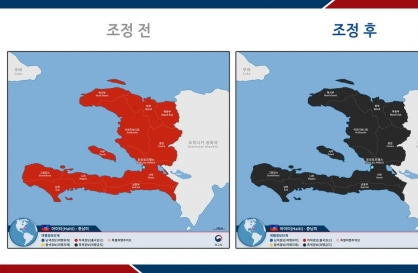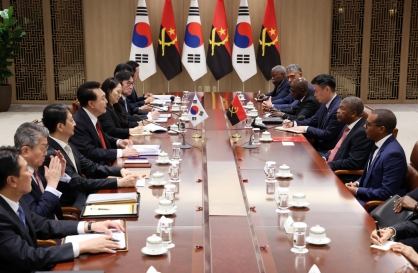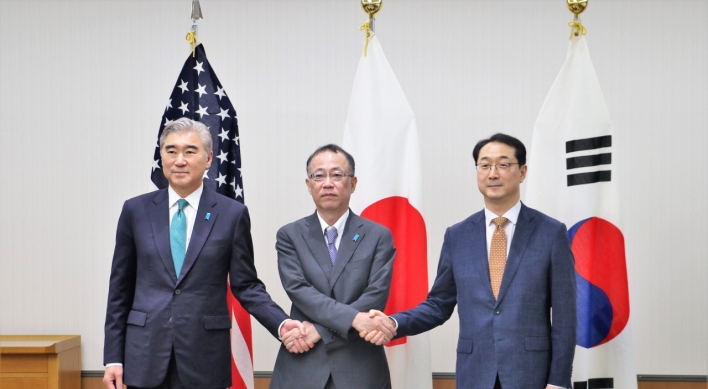Domestic matters to have bigger impact in Israel’s Jan. 22 elections
By Korea HeraldPublished : Jan. 13, 2013 - 20:33
Israelis head to the polls on Jan. 22, but Israeli Ambassador to Korea Tuvia Israeli cast his vote at his country’s chancery on Thursday.
“Many important countries held elections in recent months. Now Israelis are having theirs,” Israeli said during an intimate discussion session held at the Israeli Embassy with a handful of reporters and Israeli diplomats.
Israelis living outside the country are not permitted to cast ballots in elections, but seamen and diplomats and their families and other officials are entitled to vote at Israeli diplomatic missions at some 94 locations around the world.
Hebrew University’s professor Itzhak Galnoor, a political scientist and senior research fellow at the Van Leer Jerusalem Institute Jubilee, headed up the discussion on the balance between security and domestic issues in this year’s election, as well as the impact of widespread protests for social justice that swept the country.
“Many important countries held elections in recent months. Now Israelis are having theirs,” Israeli said during an intimate discussion session held at the Israeli Embassy with a handful of reporters and Israeli diplomats.
Israelis living outside the country are not permitted to cast ballots in elections, but seamen and diplomats and their families and other officials are entitled to vote at Israeli diplomatic missions at some 94 locations around the world.
Hebrew University’s professor Itzhak Galnoor, a political scientist and senior research fellow at the Van Leer Jerusalem Institute Jubilee, headed up the discussion on the balance between security and domestic issues in this year’s election, as well as the impact of widespread protests for social justice that swept the country.

As masses of young people across North Africa and the Middle East fomented the Arab Spring in early 2011, masses of mostly young people in Israel came out in demonstrations as well. At its peak, half a million people thronged the streets in Tel Aviv for a litany of social justice causes, including housing and education reform.
Galnoor said this election will determine the extent of the impact of what has become known as “the social justice protests of the summer of 2011.”
“The main question in this election is whether for the first time most Israelis will vote on the basis of their domestic considerations rather than external ones,” he said. “The main question is what will be the impact of social protests over the summer of 2011.”
Questions over security and peace negotiations with the Palestinian Authority have long dominated Israeli electoral campaigns, favoring right-wing political parties, most recently Prime Minister Benjamin Netanyahu’s Likud.
But domestic considerations have gained salience now. The 2011 social justice protests have rejuvenated the center-left Labor Party, which has not led a coalition government since Ehud Barak swept elections in 1999 under his One Israel Party.
While Likud is favored to win again, Labor is forecast to double its representation in the Knesset to 15 to 20 seats.
“Some 11 days remain before the vote and, in Israeli politics, 11 days is like 100 days. Anything can happen,” Galnoor said.
It is true that domestic issues have gained weight in this election, but security issues are not completely out of mind among the electorate, said Galnoor.
“When the government of Yitzhak Rabin (in 1992) was elected ― and I was a part of it at that time ― this was the first time in which domestic and security issues were more or less balanced,” he said.
“And this is the strategy of some of (left-leaning) parties this time. They are trying to ignore (security and external affairs), but they are trying to ignore the issue so much, their silence is deafening,” he said.
By Philip Iglauer (ephilip2011@heraldcorp.com)
-
Articles by Korea Herald



















